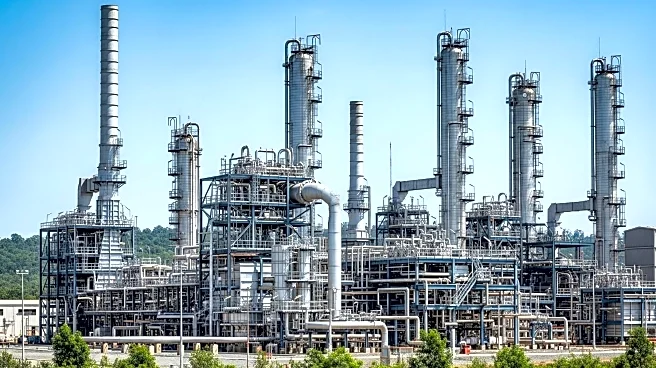What's Happening?
Angola is preparing to commence fuel production at its newly constructed Cabinda oil refinery, marking the first such development in the country since gaining independence 50 years ago. The refinery, with a capacity of 30,000 barrels per day, aims to reduce Angola's dependency on fuel imports, which currently account for 72% of its fuel needs. The project is led by London-based investment firm Gemcorp, with state-owned Sonangol holding a minority stake and supplying feedstock. The refinery's first phase is expected to meet 5-10% of domestic fuel demand, with plans to double capacity in a second phase. The initiative comes as Angola phases out fuel subsidies, a move that has previously led to protests.
Why It's Important?
The launch of the Cabinda refinery is a significant step for Angola in reducing its reliance on imported fuel, which has been a costly burden on the economy. By increasing domestic production, Angola can potentially stabilize fuel prices and reduce the economic impact of subsidy removal. This development is crucial for the country's energy sector, which has faced challenges due to declining crude production. The refinery's operation could also attract further investment in Angola's oil industry, providing a boost to the economy and creating job opportunities.
What's Next?
The next steps involve completing the second phase of the Cabinda refinery to increase its capacity and add a hydrocracking unit for producing diesel and jet fuel. Additionally, Angola is reassessing other downstream projects, including the Soyo and Lobito refineries, which face various challenges. The government is seeking new investments to address declining crude production, with companies like Equinor ASA and Chevron Corp. ramping up activities in the region.









